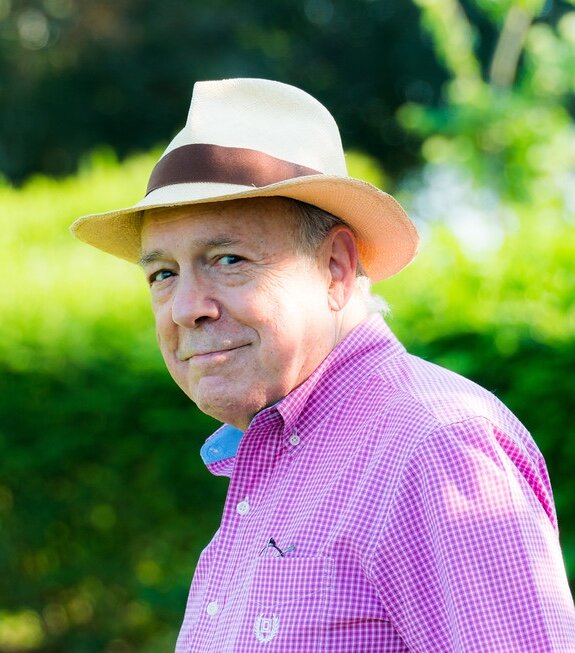Victor Rosenbaum: “The Who Cares If You Listen years are in the past,” he says. “People like it if they have access.”
Not many nine-year-olds would move across the continent to study piano.
Unless their teacher was Victor Rosenbaum.
“His mother found me,” Rosenbaum says of his young student, Kingsley Chen. “She contacted me, and said her son was in love with my playing. They had just immigrated from China to Las Vegas. I visited them there on a trip, and heard him play.
“Then they moved to the Boston area to be closer to me. I’ve been seeing him in person—I couldn’t not do it.”
During his 53 years of teaching, Rosenbaum—who has taught at New England Conservatory all that time, even while he was president of Longy School of Music (1985–2001), and then faculty at New York’s Mannes School of Music (2004–17)—had given up working with such young students. After all, he’s had generations of conservatory-level pianists to coach.
So young Kingsley Chen brings him back to keyboard basics.
“I have to build a foundation,” Rosenbaum says. “I haven’t had to do that for a long time—ear training, theory, technical work. He just played his first Beethoven sonata. He loves music so much, it inspires me to see it.”
Chen isn’t the only student that Rosenbaum has maintained this past year.
“I’ve been teaching some students regularly, several intermittently,” the Brighton resident says. “A few in person. On one hand I hate Zoom—the static, time lags, terrible sound. On the other hand, where would we be without the Internet? My daughter got married on Zoom last May.”
And there’s the music. Rosenbaum has used this lonely year to learn new repertoire—“a Haydn sonata, the Schubert G major, Schumann ‘Kreisleriana,’ Beethoven’s Opus 101 sonata, and many smaller things,” he says. He’s also finished a recent release on Bridge records, “Brahms: The Last Piano Pieces,” a deliciously nostalgic recording suited to the contemplative isolation of the past months.
“The music—that’s saved me,” he says. “You can take walks, read, watch movies, but this you can immerse yourself in during a barren and lonely time.”
Recording, studying and teaching have filled the space, but have hardly kept world events at bay. The passionate movement for more inclusion in classical music, fired by last summer’s social unrest, struck a chord.
“It’s been a real wake-up on racism in this country, and how it impacts everything,” he says. “Music of minority composers who have not been heard—that was the awakening this summer. NEC has responded strongly, with commissions, consultants overseeing diversity.
“But the problem was too evident in a Zoom performance with the prep division,” he says. “They played a piece by William Grant Still. As you panned from box to box, you saw nary a black or brown face. In that context, playing a black composer in the absence of black performers was noticeable.
“The prep division especially has to do more outreach and recruitment, and partnering,” he says. “NEC is not alone.”
Turning away from the music of the past is not a solution Rosenbaum embraces, though.
“It’s great to find a composer that we didn’t know about, like Florence Price, whose music was re-discovered a few years ago,” he points out. “But I think there’s a certain stigmatization in embracing the western canon, as if it’s something we must lose. To praise not doing Beethoven—that’s not good. There was a 300-year period when music reached an apex of greatness, and we may never see it again.
“All over the world ethnic music traditions are known and recorded—Africa, Asia. In Japan every conservatory has an ethnic music department. China is saving western classical music—they love Beethoven, Brahms and Bach, and they’re not being forced. They’re embracing and studying it. It has established an unprecedented place in world culture.
“I’m happy to see the greater awareness,” he says, “but I don’t want the corollary—to be embarrassed by Beethoven. There will be those, like me, who have something to contribute to the Beethoven sonata.”
Rosenbaum’s five-decade perspective on the state of classical music is not without optimism.
“This is not something that started last summer,” he says, “with the awareness of underserved communities, and composers from those communities. Contemporary music has had a resurgence in the past 20 years. When I came to Boston in 1967, Boston Musica Viva was the only contemporary group. Look at it now.
“The Who Cares If You Listen years are in the past,” he says, quoting composer Milton Babbitt’s antagonistic maxim from the 1950s. “Composers do care what people listen to. They’re not writing solely for each other, as Babbitt suggested.
“People will like it if they have access,” he says. “Look what happened in Venezuela. Now El Sistema is around the world, including Boston. It the programs exist, and people have role models, there will be a next generation of music. That’s where it starts.”
Keith Powers covers music and the arts for Gannett New England, Leonore Overture and Opera News. Artists Alone is a series about musicians and the impact of the pandemic. Follow @PowersKeith; email to keithmichaelpowers@gmail.com.


